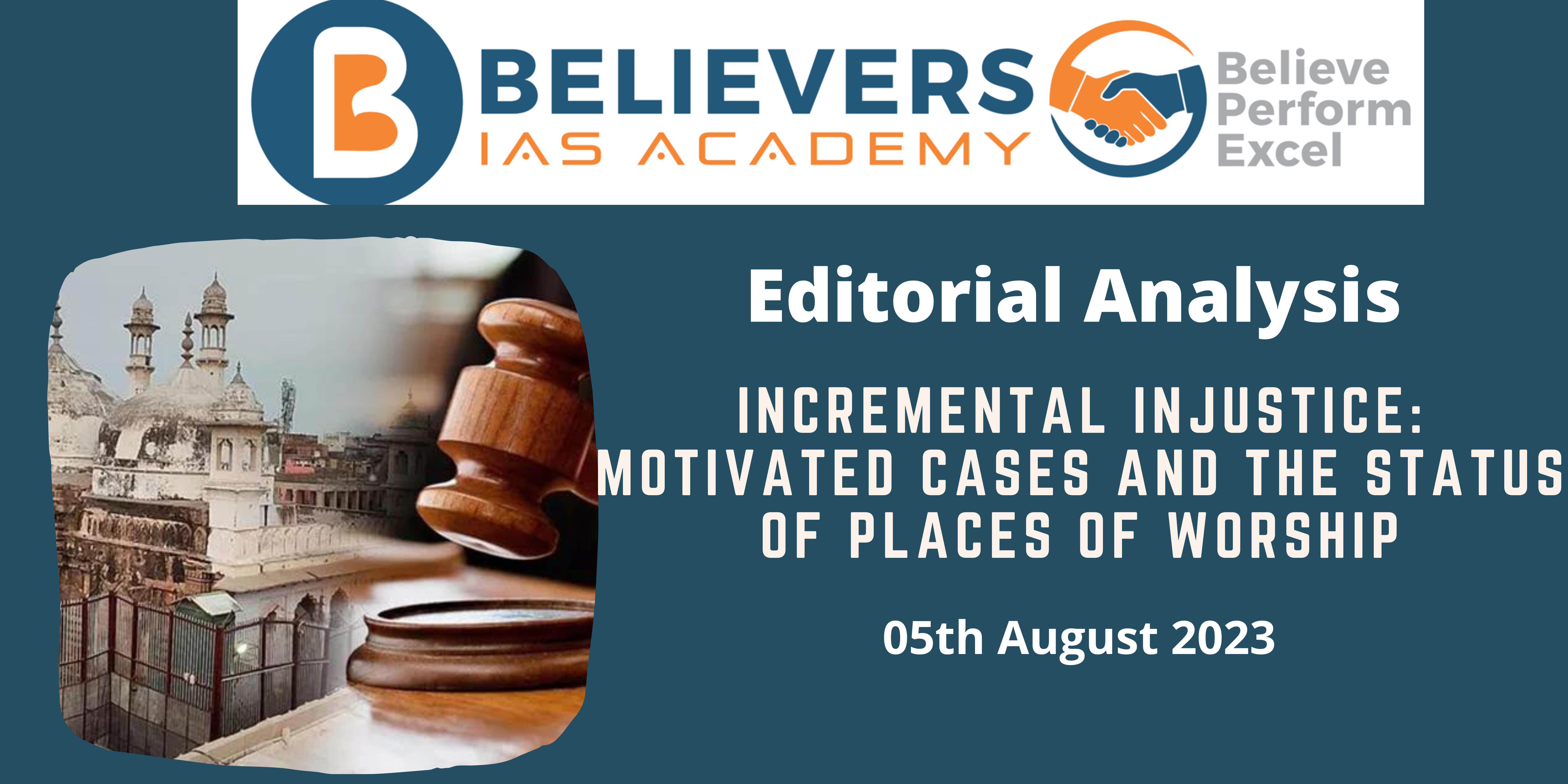Incremental Injustice: Motivated Cases and the Status of Places of Worship
Context:
The recent decision by the Allahabad High Court to uphold the Archaeological Survey of India (ASI) survey at the Gyanvapi mosque has sparked controversy. This move may inadvertently pave the way for altering the character of this place of worship. While both the High Court and the Varanasi District Court initially ruled that the suit by Hindu devotees for the right to worship some deities within the mosque was not barred by the Places of Worship (Special Provisions) Act, 1991, the subsequent demand for a scientific survey raises questions about the underlying motives and potential consequences.
Relevance:
GS-02 (Government Policies & Interventions, Judiciary, Indian Constitution)
Prelims:
- The Places of Worship (Special Provisions) Act, 1991
- Gyanvapi mosque conflict
- High courts
Mains Question
- Critically examine the recent decision by the Allahabad High Court regarding the ASI survey at the Gyanvapi mosque and discuss its potential impact on places of worship in India. (250 words)
Dimensions of the Article:
- A Questionable Quest for Evidence
- Encouraging Motivated Litigation
- Burstiness in Legal Proceedings
A Questionable Quest for Evidence
- The courts’ endorsement of the plea for a scientific survey by archaeologists to determine the origin and history of the Gyanvapi mosque raises eyebrows. While the primary claim is for the right to worship Hindu deities within the precincts, the demand for a detailed analysis of pillars, walls, and artefacts seems disproportionate to the essence of the case.
- The heart of the matter lies in whether Hindu deities were indeed worshiped at the site before and after August 15, 1947, and whether this worship continued till the late 20th century.
- The focus on establishing the presence of an earlier structure beneath the mosque appears to be a calculated move to create a platform for seeking an alteration to its status.
Encouraging Motivated Litigation
- By entertaining the demand for a scientific survey, the courts inadvertently encourage motivated litigation targeted at Muslim places of worship.
- Such cases raise concerns about the abuse of the legal process and the potential for incremental injustice.
- It is essential to consider the broader implications of such decisions and the repercussions they may have on the delicate fabric of religious harmony in India.
- The courts must weigh the claims of religious freedom and the right to worship against the risk of unsettling the historical status quo of religious sites.
Burstiness in Legal Proceedings
- The application for a survey, introduces in the form of demands for expert evidence and scientific analysis.
- This burst of complexity challenges the traditional approach to such matters, urging a reevaluation of the conventional legal framework.
Way Forward
- To address the issue of incremental injustice and thwart motivated litigation, the courts should exercise caution when dealing with religious matters. While religious freedom is a constitutional right, it must be balanced with the imperative to maintain communal harmony.
- The High Court must ensure that expert evidence is sought only when absolutely necessary and when it aligns with the core issues of the case. Furthermore, the legal process should be streamlined to prevent unnecessary delay and exploitation.
Conclusion:
While it is essential to uphold the right to worship and religious freedom, it is equally crucial to safeguard the sanctity of places of worship and protect them from motivated litigation. The courts must tread carefully to avoid inadvertently altering the status of religious sites, thereby safeguarding India’s diverse cultural heritage. A balance must be struck between the demands of evidence and the preservation of communal harmony, lest incremental injustice finds its way into the fabric of our legal system.





